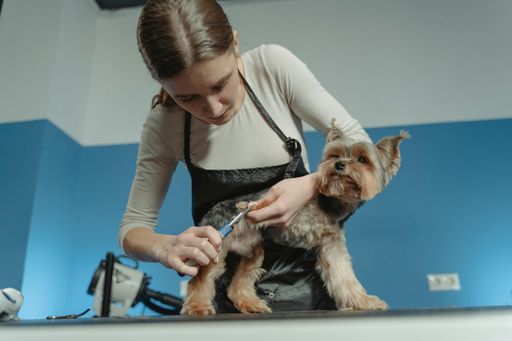Sharing your home with a dog makes you healthier, according to research. But if you’re one of the 43 million renters in the U.S. then you’re likely to find it difficult to find a suitable rental property if you own a large breed of dog. Even if you are lucky enough to find a landlord willing to let you a property, there’s a higher chance it will be substandard. So, just how do you successfully bag you and your big hound a decent home to rent?
Get a reference
Large dogs often get a bad reputation. Landlords often say no to large breeds of dog because they think they’ll be destructive and ruin their property. If you’ve had your dog for some time, ask your current landlord to write a reference supporting your dog. Your new landlord is more likely to give you and your pooch the go ahead to move in if you can prove that your pet is well-behaved. If this isn’t an option, try to arrange a meetup. A landlord that’s able to meet your dog and spend some time with him or her will get to see what they’re really like and is more likely to agree to let you both move in.
Don’t settle for second best
Research has found that dog owners typically live in poorer conditions than non-pet owners, due to less options being available. But living like this isn’t good for your or your large dog’s health. You ideally need a rental property in a safe neighborhood with good outdoor amenities. Big dogs need long walks, so being surrounded by parks and green space is ideal. Give yourself plenty of time to find the right rental property in the right area and don’t settle for the first property that allows large dogs. If you’re moving from a mortgaged property, make sure you price your property appropriately. It’s often beneficial to underprice your home as this will entice buyers. You’ll then have a set timeframe before you complete to find the perfect rental property for you and your dog.
Increase your budget
Around 55% of landlords allow pets. Often, they’ll dictate a size limit on dogs of between 20 and 50 pounds which means large breeds miss out. There are ways around this, though. Agreeing to pay a pet deposit which will cover the cost of damages is one option. This is usually between $200 and $500, but some states have a limit in place. A one off pet fee is also common. You could also consider paying pet rent. This is a fee on top of your standard rental figure. Mercury News reports that this fee can be anything from $50 upwards, so you’ll need more cash than a non-dog owner to secure a home.
It can be difficult to rent a home when you’re the owner of a large breed of dog. But all is not lost as there are ways to convince a landlord that your and your pet are model tenants.



















